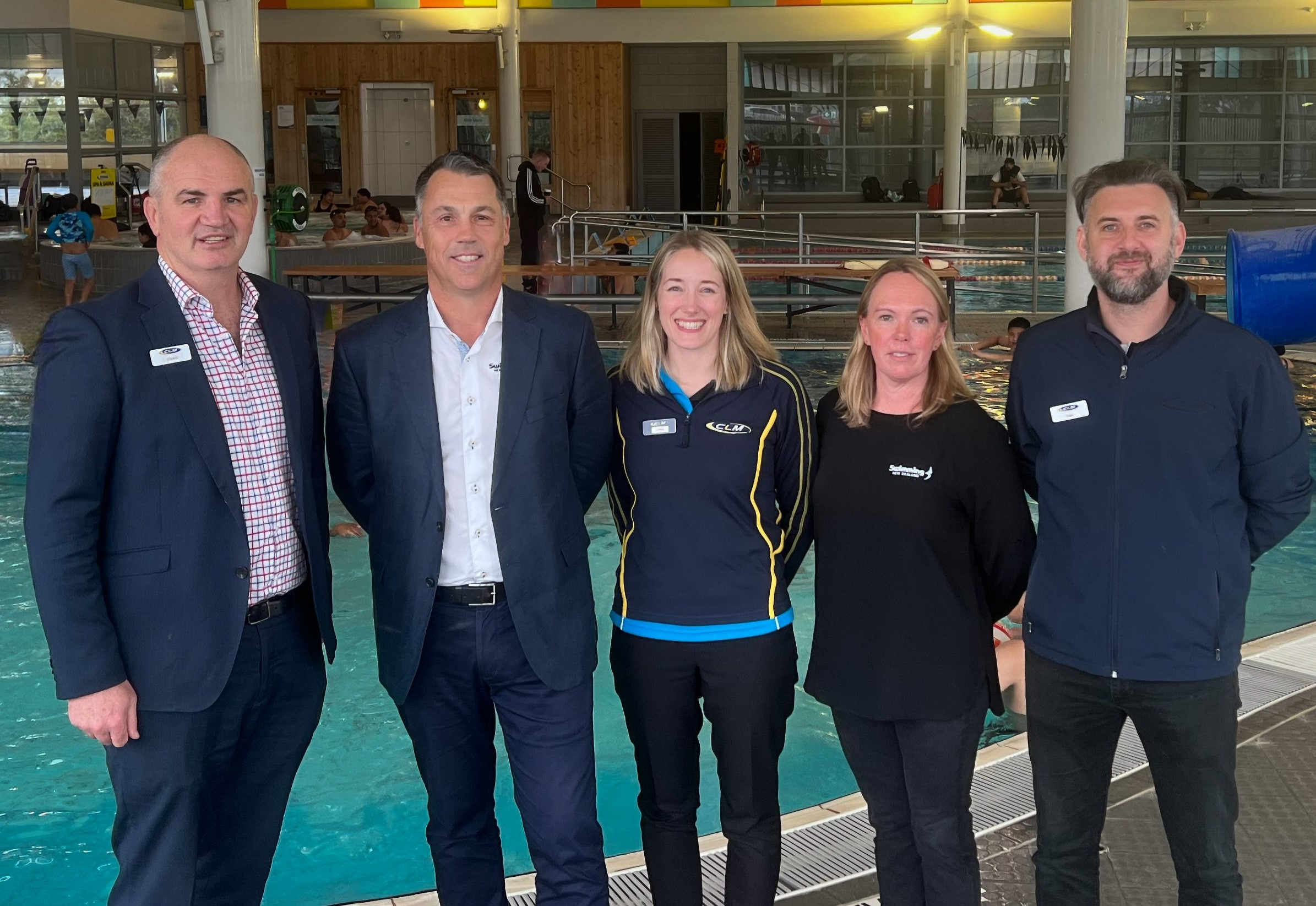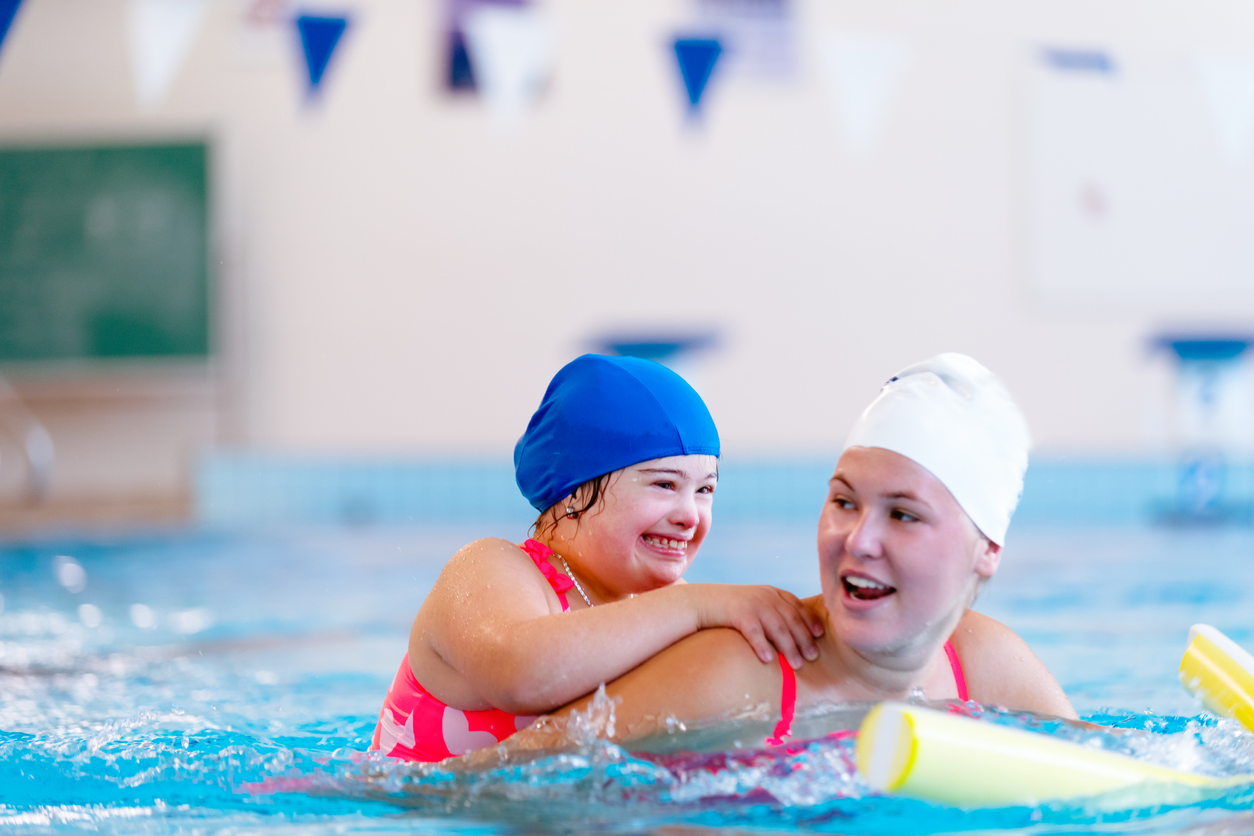The long-term benefits of swimming lessons for kids

The long-term benefits of swimming lessons for kids
Learning to swim teaches skills that extend far beyond the pool. As children progress in the water, they’re also gaining confidence in themselves and other advantages that will continue with them in other aspects of their life.
Swimming lessons promote a range of social skills, improve physical and mental health, are a great way to bond with others and much more. So there are many wonderful reasons to start lessons early and stick with it.
Alisha Hall is a co-ordinator at SwimMagic’s Riverside pool in Nelson. She has been a swimming instructor for five years and has seen first-hand the value they offer children. In this blog, Hall explains the key benefits of keeping kids in swimming lessons long-term.
Here are some of the fantastic life-long benefits of swimming
Physical progress
Learning to swim builds water skills for life, but there are so many other physical benefits. From babies through to adulthood, swimming enhances motor skills, coordination and flexibility.
Water safety
Awareness of the dangers of water and how to keep yourself safe are hugely important for New Zealanders. Swimming lessons teach children how to enter and exit the water safely, and other vital safety skills including, how to save yourself if you fall in, float, and get to the side of the pool.
Social skills, self-discipline and perseverance
Swimming lessons promote teamwork and social development as children learn to work together. As they progress in the water, they also develop self-confidence, discipline, goal setting and perseverance — valuable skills in and out of the water.
Keep active, fit and healthy
There’s no doubt swimming is a great way to stay physically fit and healthy. This low-impact sport is gentle on the body while improving strength and coordination. Swimming is also great for mental health and happiness.
Great platform for other water sports
Once children can swim, lessons evolve into the practice of refining swimming techniques. This is a great foundation for a variety of aquatic sports including, diving, snorkelling, water polo, surfing, and synchronised swimming.
Learning to swim takes time and patience
Parents often take their children out of lessons because they don’t see progress quickly, but the pace of learning is different for everyone and isn’t always linear. “It’s not step-by-step — progress comes in waves,” she says. Eventually, “something clicks” as children start to understand the different skills and their progress starts to accelerate.
One of Hall’s students is an example of what can be achieved through patience and perseverance. The six-year-old girl recently moved to New Zealand and had no previous experience in the water. Terrified, when she started group lessons she threw tantrums and refused to join in so her parents decided to move her into private lessons at the start of the year. The transformation since then has been incredible, says Hall. Now, the girl can swim a full length of freestyle and most importantly, her confidence has grown so much that she loves being in the water.
The goal is for children to be able to save themselves in the water and swim independently. With consistent lessons this is typically achieved by age 8-10, says Hall. After this, children can start to work on their technique and utilise the skills in other water sports.
Ultimately, it’s about having fun in the water while learning life-long skills, says Hall. “It’s really fulfilling watching kids progress in lessons and having an impact in their lives.”
More News

SwimMagic Race Carnivals
At SwimMagic each year we run free fun race carnivals as a fun introduction to competitive swimming in a relaxed environment.

CLM's SwimMagic proud to be inaugural Swimming New Zealand Registered Swim School
The swimming NZ Registered Swim School Programme has been developed to provide swim school operators with an industry recognised accreditation that signals their acceptance and achievement of a set of standards.

Swimming Lessons for Children with Additional Needs
If you’re the parent of a child who struggles in group lessons, is easily overstimulated, has sensory issues, is fearful of water or has other specialist needs when it comes to learning to swim, this blog is for you.